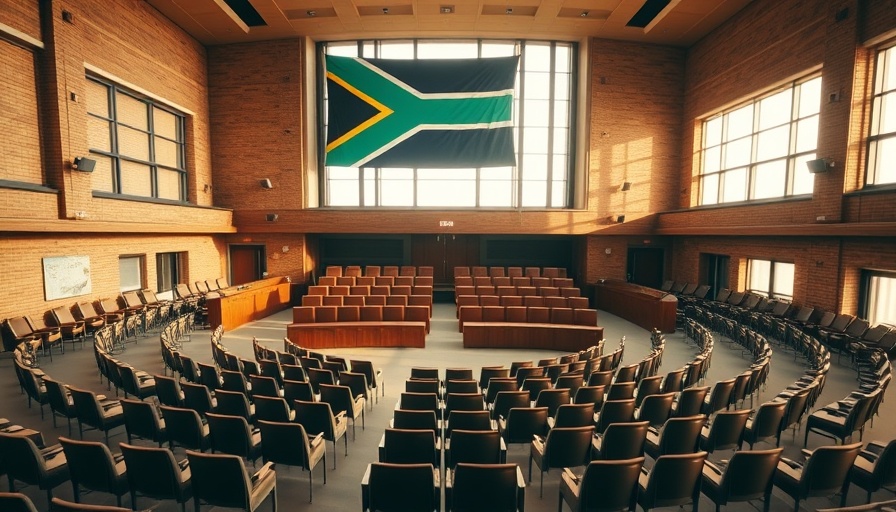
uMkhonto weSizwe Party Challenges Presidential Authority in Constitutional Court
The uMkhonto weSizwe Party (MKP), led by Chief Whip Colleen Makhubele, is gearing up for a pivotal appearance at the Constitutional Court. They aim to challenge President Cyril Ramaphosa’s recent decision to place Police Minister Senzo Mchunu on leave, arguing that this move is both invalid and irrational.
The controversy escalated following claims by KwaZulu-Natal Police Commissioner Nhlanhla Mkhwanazi, who alleged that Mchunu has had connections with individuals associated with organized crime. Makhubele has been vocal about what she sees as an urgent need for presidential accountability, stating, “The seriousness of the allegations against Mchunu cannot be overlooked; he should have been dismissed immediately.”
Political Accountability: The Heart of Constitutional Integrity
This case brings to light crucial questions surrounding political accountability in South Africa’s governance. Makhubele asserts that the nation's leadership must act decisively when presented with serious allegations against officials. “We cannot operate with three Police Ministers in a short span without clear accountability,” she remarks, emphasizing the need for stability and transparent governance.
The upcoming Constitutional Court hearing is seen not merely as a legal proceeding but a critical battleground for principled political opposition and accountability within the coalition government structure under President Ramaphosa. As tensions heighten among opposition parties such as the Democratic Alliance (DA) and the Economic Freedom Fighters (EFF), MKP is positioning itself as a vanguard for transparency and anti-corruption measures in South African politics.
The Implications of Mchunu’s Leadership on Crime Prevention
Mchunu’s leadership is under intense scrutiny amid growing concerns about crime prevention in South Africa. With escalating crime rates and public safety being a deeply felt issue, the appointment or dismissal of the Minister of Police carries significant weight in the eyes of the electorate.
As the nation anticipates the 2024 general elections, the MKP's actions could symbolize a shift in political dynamics, particularly with voter turnout becoming increasingly vital in determining future leadership. The involvement of multiple parties in questioning presidential authority is sure to resonate with a population weary of crime and seeking effective governance.
Future Predictions: What This Means for Ramaphosa’s Administration
This legal challenge could force Ramaphosa to reconsider his strategies. Should the court rule in favor of MKP, it may trigger a domino effect, influencing council appointments and further reshaping the political landscape as he prepares for the upcoming municipal polls in 2026.
Historically, South Africa's political shifts have been marked by oratory and decisive actions, often impacting the trajectory of governance. This moment could prove transformative for the ruling African National Congress (ANC), pushing them towards a more robust approach to structural reforms and public accountability.
Social Repercussions: What Citizens Expect from Political Leaders
For South African citizens, particularly those affected by crime and mismanagement, there is an expectation that their leaders act decisively in response to public concerns. The MKP is tapping into a sentiment that resonates widely—an expectation for integrity and accountability in leadership.
The outcome of this case will likely impact public trust toward the government of national unity, illustrating how intertwined justice and electoral aspirations can shape the future narrative of South Africa.
As the Constitutional Court prepares to hear MKP's urgent application, the implications of this ruling extend beyond the courtroom, representing broader hopes for reform, greater government accountability, and, ultimately, the fight against corruption in South Africa.
 Add Row
Add Row  Add
Add 




Write A Comment